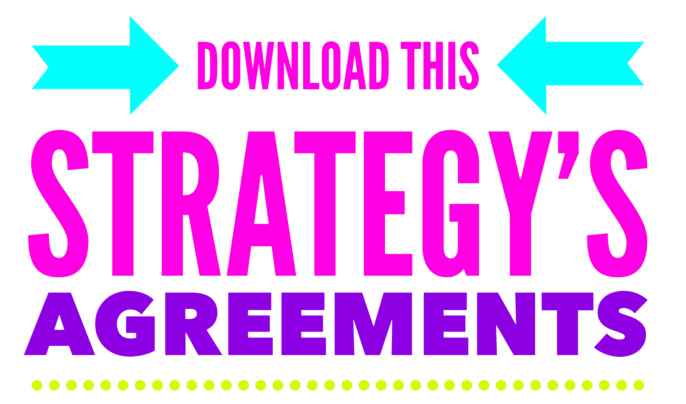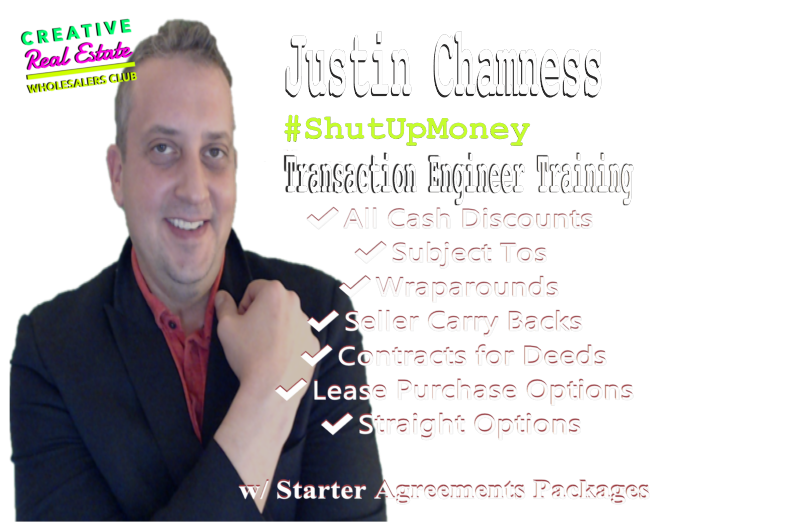Straight Option to Purchase
Buying a property as an investor using a straight option involves securing the exclusive right to purchase a property at a predetermined price within a specific timeframe, without the obligation to do so. This option provides flexibility to evaluate the property and potentially profit from its future appreciation. Investors pay an option fee to the property owner for this right, but they can choose not to exercise it if market conditions or circumstances change. Investors may exercise their option to purchase the property during the agreed upon time frame if they desire to keep the property, or they may sell this option to purchase to other investors or retail buyers who may want to move in.
Example of Buying Using Straight Option:
Property Details:
Asking price of the home: $300,000
Straight Option Transaction:
The buyer obtains a straight option to purchase the property from the seller within a specified period, typically at a predetermined price. The longer the better.
Option Consideration:
The buyer pays the seller an option fee or consideration, typically non-refundable, to secure the right to purchase the property within the option period.
In this case, let's assume the option consideration is $100.
Option Period:
The buyer has the exclusive right to exercise the option to purchase the property within a predetermined period, which can be negotiated between the buyer and seller.
The option period is typically several months, but the specific duration is agreed upon in the option agreement.
Purchase Decision:
During the option period, the buyer has the right, but not the obligation, to exercise the option and purchase the property at the predetermined price of $280,000.
Purchase Process:
If the buyer decides to exercise the option and proceed with the purchase, they notify the seller in writing before the option expires.
Both parties then proceed with the necessary steps for closing and transferring ownership, as outlined in the option agreement.
Option Expiration:
If the buyer chooses not to exercise the option within the specified period, the option expires, and the buyer does not have any further rights or obligations to purchase the property.
👏 ASK THIS QUESTION TO SEE IF THIS "STRAIGHT OPTION" STRATEGY FITS THE HOMEOWNER LEAD YOU'RE TALKING TO:
"Mr. Home Owner, If i were to show my partners and connections this opportunity, and make a few dollars for selling this idea to them, can I start by getting you to sign my permission slip?"
👏 You'll Know This Strategy Fits If The Homeowner Says:
"I’d be willing to sell, but I’m not in a hurry."
"I want to get a specific price for my home, and I’m willing to wait for the right buyer."
"I’d give you time to find another buyer if you can guarantee me a sale at my price."
"I’d prefer to get my full asking price, but I don’t need to sell immediately."
"I want to keep control of my property for now, but I’m open to selling under the right conditions."
Best For:
Sellers who want to lock in a sale price but aren’t in a rush to sell right away.
Homeowners willing to give a buyer exclusive rights (or non-exclusive) to purchase the property for a set period, while allowing them time to find a third-party buyer.
Sellers who are more focused on getting their desired price rather than a fast sale.

Agreement for This Strategy:
Straight Option Agreement
CLOSES AT TITLE ATTORNEY CO
because DEED TRANSFERS
Quiz/Test: Straight Option to Purchase Investing
What is the Straight Option to Purchase strategy?
a) The buyer obtains a straight option to purchase the property from the seller within a specified period at a predetermined price.
b) The buyer leases the property with the option to purchase at the end of the lease term.
c) The buyer assumes the seller's existing mortgage and makes regular payments.
d) The buyer and seller agree on seller financing with a carry back arrangement.
What is the purpose of the option consideration in a Straight Option transaction?
a) To reduce the purchase price of the property.
b) To cover the seller's outstanding mortgage balance.
c) To secure the right to purchase the property within the option period.
d) To pay for property maintenance and expenses.
How long is the option period typically in a Straight Option transaction?
a) Several weeks
b) Several months
c) Several years
d) The option period varies depending on the agreement.
What happens if the buyer decides to exercise the option to purchase during the option period?
a) Both parties proceed with the necessary steps for closing and transferring ownership.
b) The buyer assumes the seller's existing mortgage.
c) The purchase price is renegotiated.
d) The buyer becomes responsible for property taxes and insurance.
True or False: The buyer has the obligation to exercise the option in a Straight Option transaction.
a) True
b) False
What is the predetermined price in a Straight Option transaction?
a) The asking price of the property.
b) The appraised value of the property.
c) The market value of similar properties.
d) The price agreed upon by the buyer and seller in the option agreement.
What happens if the buyer chooses not to exercise the option within the specified period?
a) The buyer is refunded the option consideration.
b) The option period is extended.
c) The buyer has the option to negotiate a new purchase price.
d) The option expires, and the buyer does not have any further rights or obligations.
Who initiates the closing and transfer of ownership in a Straight Option transaction?
a) The buyer
b) The seller
c) The lender
d) The closing agent
What legal document is typically involved in a Straight Option transaction?
a) Purchase and Sale Agreement
b) Option Agreement
c) Lease Agreement
d) Promissory Note
Where does the closing typically take place in a Straight Option transaction?
a) Seller's attorney's office
b) Buyer's attorney's office
c) Title company's office
d) Real estate agent's office


